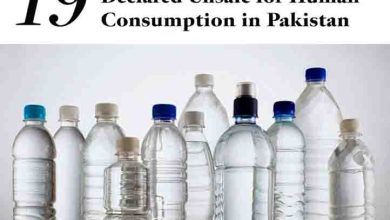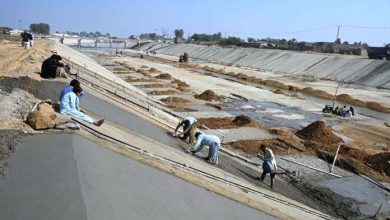Sharpening the Shark’s Teeth
Source: Circle of Blue By Brett Walton, Date: December 13, 2022
Spend a few days at a water conference and you’ll hear a favored metaphor for the environmental changes that are unsettling the planet.
If climate change is a shark, attendees will say, then water is the shark’s teeth. In this telling, when higher temperatures bite, victims are likely to suffer a hydrologic trauma: too much water or too little. Floods wash away homes; droughts kill livestock and crops.
The strength of the shark’s teeth and the breadth of the bite were on full display in 2022.
Ferocious monsoon floods submerged one-third of Pakistan, devastating the agriculture sector in Sindh province, displacing 8 million people, and killing more than 1,700. A third consecutive year of the La Niña weather pattern was a calamity for the Horn of Africa, where parts of Somalia are on the verge of famine for the second time this century.
Economies were not spared. Low water on the Rhine and Mississippi rivers halted barge traffic and drove up shipping costs on two of the world’s most important commercial waterways. The big reservoirs on the Colorado River continued to shrink as a warming climate and inadequate conservation dry out the basin. European glaciers suffered startling losses in ice coverage during intense summer heat that caused French towns to run out of drinking water.
Betraying its carefree reputation, summer became a season of dread as cloudless days and broiling heat underscored the fragility of water-dependent energy systems. In August, French regulators suspended thermal pollution standards for rivers, allowing nuclear plants to overheat streams. The same month Chinese authorities closed Toyota and Foxconn factories in Sichuan province, a leading manufacturing center, after a record-breaking heat wave curtailed hydropower output and strained the electric grid.
Two weeks ago, the Zambezi River Authority ordered the operators of Kariba Dam to halt hydropower generation through at least January 2023, worsening electricity shortages in Zimbabwe and Zambia. The dam’s reservoir, the world’s largest at maximum storage, is less than 3 percent full.
Each year delivers tales of the largest, driest, and worst. In many ways the superlatives are derived from a fevered atmosphere. But the consequences are due not only to powerful storms. They are also a result of poor decisions about where to build, what to subsidize, or how to allocate land and water.
Though vivid, the shark metaphor is an inadequate frame for some of 2022’s defining water stories.
-
Russian forces attacked Ukrainian infrastructure, leaving millions of civilians in Kyiv and Kherson without heat or running water. Legal scholars called the targeting of essential infrastructure a violation of international law.
-
Cholera erupted worldwide, with cases reported in 29 countries, including large outbreaks in Haiti, Malawi, and Syria that resulted in a vaccine shortage. To conserve supplies, the group of health agencies that coordinates global vaccine distribution began administering one shot instead of the typical two doses.
-
Another failure of seasonal rains in the Horn of Africa pushed Somalia to the brink of famine. Food distribution was not helped by simmering local conflicts that obstructed aid work and global grain markets that were disrupted by Russia’s war against Ukraine. More than half of children under age 5 now face acute malnutrition, a developmental setback that results in severe weight loss or death.
-
South Africa’s municipal water systems are in disarray, buffeted by a warming climate while enduring a miasma of leaky pipes, outages, and rationing.
A climate shark is fearsome enough for water. But bad economic, managerial, and political choices serve to sharpen the teeth and deepen the bite.
John Matthews, the executive director of the Alliance for Global Water Adaptation, calls it “a crisis in decision making.” Disasters are horrific and noteworthy. But, in his mind, they can distract from the grinding work of establishing new policies and laws to redirect society.
“If the story is impacts and disaster and not resilience, then collectively, as voters and politicians, we’re not seeing the actionable and useful story,” Matthews said.
He sees new ideas stirring. Countries are thinking about water in their national climate adaptation plans, where they need to incorporate responses to immense, society-altering water considerations — the disappearance of glaciers, failures of seasonal rains, rising seas. With the UN climate summit hosted by Egypt this year, he said Middle Eastern countries became especially keen to understand the crucible conditions of a water-scarce future.
“Water will be the language in which this resilience work takes place,” Matthews said.
There are ways, if not to tame the shark, then at least to blunt the teeth. Unless public officials and business leaders make better decisions, the morbid cycle of damage and loss will repeat and repeat.
Below is a sampling of the reports Circle of Blue posted this year investigating the world’s biggest water challenges.







